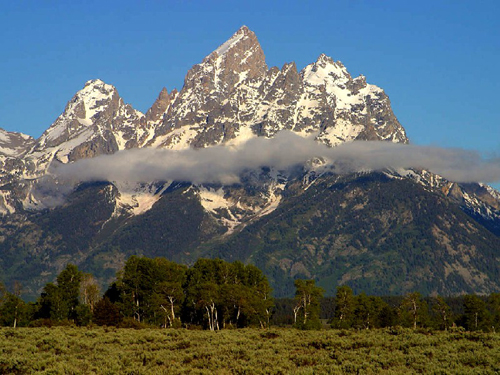 No water? No worries.
No water? No worries.
When I was a teenager my family took a two-week backpacking trip through the Teton Mountains. It was breathtakingly beautiful, pristine and awe-inducing. Camping there also came with a pretty strict set of rules concerning what products you could use. Anything with artificial scents was banned because it attracted bears, and liquids were discouraged whenever possible because they were heavy and you had to carry everything with you over several days and many miles. The only water for bathing was frigid rivers from melted snow and ice further up the mountains, so sold it instantly gave you a headache if you got your hair wet. I solved this problem in the innovative ways teenagers do, I stopped all attempts to get my hair clean. Five days in my hair was so greasy that I looked like the proverbial otter in an oil slick. One of the other women had a bottle of talc with her, and so I was introduced to the idea of dry shampoo. With just a sprinkle of powder and a brush I was looking almost human again and felt tons better. What exactly is a dry shampoo? And why should I use it?
A dry shampoo is a powdered substance used to clean the hair where it isn't practical or desirable to use water and traditional shampoo. Dry shampoos work by soaking up oil and dirt on the scalp and then both the shampoo and the trapped dirt is brushed out of the hair. Some of the benefits of Moondust include:- Stretching Washes- Moondust will clean the hair without overstripping the scalp and stimulating it to produce more oil. This lets you go longer in between traditional washes and helps retrain your scalp to produce less oil.
- Preserving Color & Treatments- If you use chemical hair dyes, washing causes the color to fade faster than anything. Dry shampoos remove the oils in your hair, but not the color. Also, if you've had a brazilian blowout or a keratin treatment, you're instructed not to wash your hair for several days. Dry shampoo makes this easy and won't interfere with your treatment!
- No water needed!- No need to take a lengthy shower just to clean your hair! It's great for camping, after the gym, or anytime you're strapped for time, but just need to freshen up your locks.
Introducing Moondust Dry Herbal Shampoo
Hair care by the moon is an old practice, and some tales say that even cutting your hair by the moon can grant different effects. Trim on the New Moon and your hair will grow faster. Trim on the Full Moon and your hair will grow thicker and fuller.
This natural dry shampoo blends the amazing properties of our Triple Moon Hair Anointing Oil and our Færie Dust Herbal Hair Conditioner to give you smooth, silky, clean hair without the need for water.
A bed of Organic Orris Root is enhanced with a bouquet of herbal powders and essential oils to clean hair and leave a fresh, herbal scent behind. For those of you familiar with our Triple Moon Anointing Oil, the smell is very similar. The scent straight from the jar may seem very strong, but once used and brushed free of the hair, the sent is faint, sweet, and lingering. Unlike other dry shampoos, there are no filler ingredients, and Moondust is free of clays or powdered minerals. It's 100% herbal, lighter, and easier to brush out of your hair.
Each batch of Moondust takes a full lunar month to make. Its preparation is started at the Full Moon, the most potent of all lunar phases, and is finished at the next Full Moon.
Samples, Shaker Jars & Refills
The shaker jar is full sized version, holding 2 ounces of Moondust. This glass spice jar has a flip top, one side with holes for shaking, the other larger in case you ever need to extract a larger amount from the jar.
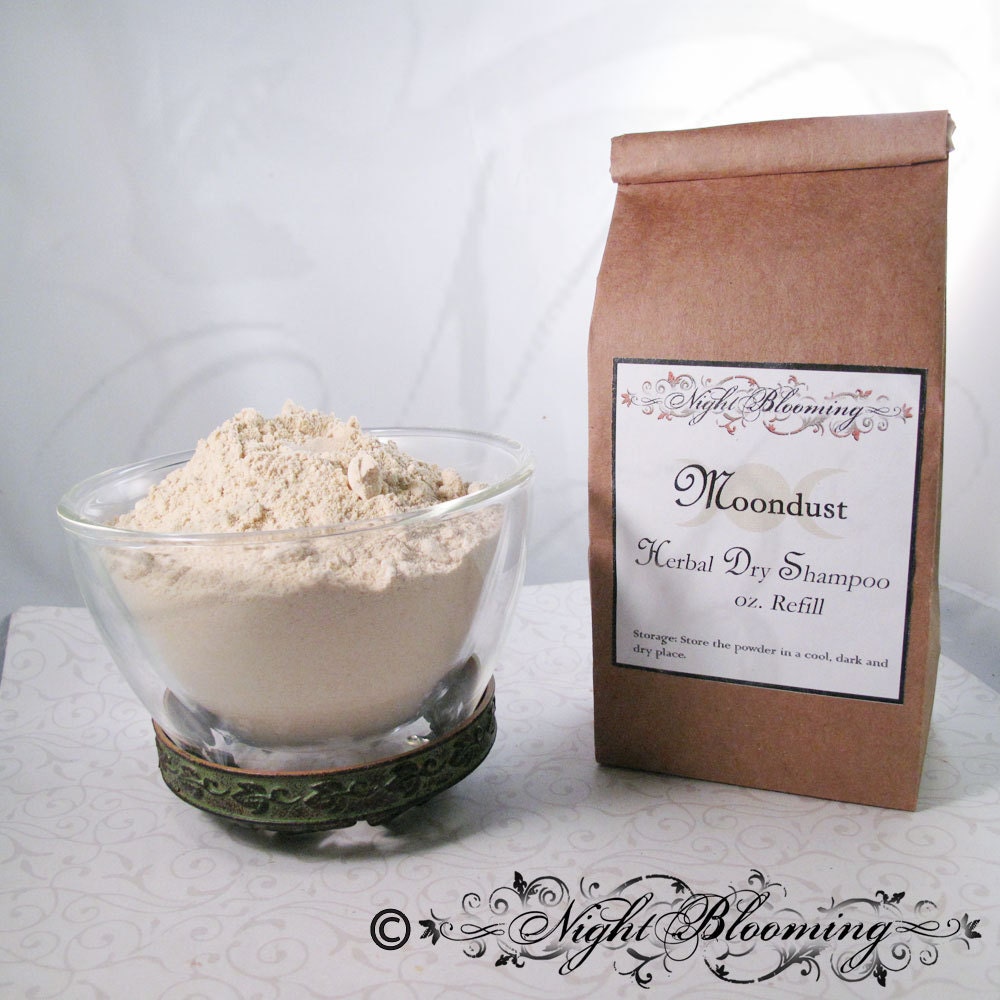 Need a refill? Save money by refilling your current class jar with a Moondust Refill Pouch. Sold by the ounce, you can get Moondust in bulk and top of your jar as needed. Order as many ounces as you'd like and it will arrive in a compostable bag. You'll need 2 ounces to refill your jar to the top, but having extra on hand for multiple refills saves time and money on shipping. Use the quantity dropdown to select how many ounces you'd like. Not sure how multistock works? This will show you how.
Need a refill? Save money by refilling your current class jar with a Moondust Refill Pouch. Sold by the ounce, you can get Moondust in bulk and top of your jar as needed. Order as many ounces as you'd like and it will arrive in a compostable bag. You'll need 2 ounces to refill your jar to the top, but having extra on hand for multiple refills saves time and money on shipping. Use the quantity dropdown to select how many ounces you'd like. Not sure how multistock works? This will show you how.Storage, Directions & Ingredients
Storage: Store the powder in a cool, dark and dry place.
Directions: Do not use on clean hair. Comb hair until free of tangles. Section hair and lightly sprinkle Moondust as close to the scalp as possible. Gently work through hair near the scalp with fingers. Let sit 15 minutes. Brush Moondust from hair with a boar bristle (or similar) brush. You may choose to cover your brush with cheesecloth to help collect the powder. Repeat if necessary.
Ingredients: Organic Orris Root, Organic Corn Starch, Horsetail (Shavegrass, Equisetum arvense), Yellow Dock (Rumex crispus), Burdock Root Powder (Arctium lappa), Marshmallow Root Powder (Althaea officinalis) aka Gulkhairo, Aloe Vera Root, Hibiscus Flower aka Jaswand (Hibiscus Rosa Sinensis), Stinging Nettle Leaf (Urtica dioica), nettle-infused oil, sea buckthorn oil, and the essential oils of bay, birch, cedarwood, german chamomile,honey, lavender, red thyme, rosemary, sage, tea tree, and ylang-ylang.
Detailed Ingredients:
Orris root– the roots Iris germanica, Iris florentina, and Iris pallida. Once important in western herbal medicine, it is now used mainly as a fixative and base note in perfumery with its sweet, floral scent.
Organic Corn Starch- This fine powder absorbs oils and odors and helps prevent clumping.
Horsetail (Shavegrass, Equisetum arvense)– Horsetail, not to be confused with cat-tail, is possibly the most abundant source of silica in the plant kingdom, helping to keep hair strong. Many people believe that horsetail can help speed up hair growth. Some of the ways to take horsetail is to drink it in your tea, take it in capsule form or apply it directly to the scalp and hair.
Yellow Dock (Rumex crispus)– This herb has been used for centuries to heal inflammed, weeping, irritated skin conditions.
Burdock Root Powder (Arctium lappa)- Contains mucilage and starches that soothes irritated skin and membranes and is one of the most effective herbs for promoting hair growth and reducing the amount of hair shed.
Marshmallow Root Powder (Althaea officinalis) aka Gulkhairo– Soothes both the skin and scalp. Used alone or in conjunction with aloe vera liquid/gel, it provides excellent relief from skin and scalp irritation while leaving hair soft and shining.
Aloe Vera Root– Contains many of the products necessary and effective in fighting hair loss: Biotin, b-vitamins, zinc and inositil. It also contains anti-bacterial properties that keep the scalp healthy by controlling scalp infections that can prohibit hair growth.
Hibiscus Flower aka Jaswand (Hibiscus Rosa Sinensis)– An emollient (meaning it helps the cuticle of the hair lay down) and a demulcent (meaning it leaves a light soothing film behind) this herb has a cooling effect. It stimulates hair growth, increases hair thickness, reduces and prevents graying, balding, hair-loss, dandruff, split-ends, and many other hair conditions and many scalp disorders. It is also an excellent natural conditioner that may impart a warm reddish color to hair.
Stinging Nettle Leaf (Urtica dioica)– Often called nature’s conditioner, Stinging Nettle is natural deep cleanser useful for oily skin and hair that promotes hair growth.
Nettle-Infused Oil– Fixed or essential oils are not obtained from this plant but extracts are produced, although not by distillation. The plant, organically grown, is macerated in virgin olive oil to produce nettle oil which contains the lipid soluble constituents. Used for treating eczema and other conditions causing itching of the skin and is natural deep cleanser useful for oily skin and hair. Nettle is also said to promote hair growth.
Sea Buckthorn Oil– So rich in vitamins and nutrients that it has been even speculated that the plant must have been cultivated by some ancient plant-breeder. A useful, highly prized, and specific oil typically used to treat damaged skin, ulcerations, scar tissue, wrinkles, eczema, burns, etc. Cold extracted from whole Sea Buckthorn berries, it is a moisturizing and anti-inflammatory, scalp soother. This oil is exceptionally rich in essential fatty acids, carotenes, tocopherols, and phytosterols.
Bay Essential Oil– Bay is a scalp stimulant and antiseptic astringent and was very popular with the Romans, who thought Bay was a symbol of wisdom, peace and protection. The Latin Laudis means “to praise,” which is why the victors at the Olympic games were presented with a Laurel (Bay) Wreath. The priestesses at Delphi sat over the burning fumes to increase their prophetic visions.
Birch Essential Oil– Birch oil is another herb that is believed to help promote hair growth. This herb is often recommended to people who may be experiencing hair thinning, as it is also known to slow down hair loss.
Cedarwood Essential Oil– Excellent for both hair and skin care. It balances oily skin, soothes and helps to heal skin rashes, reduces oil in hair and skin. Famed cedars of Biblical times (Lebanon cedar) provided one of the world’s earliest perfumes. Other ancient cultures used cedarwood for sarcophagi and palace and temple building material.
German Chamomile Essential Oil– Promotes hair growth, scalp soother and hair conditioner. This most soothing of herbs was used in ancient Egyptian medicine as an emblem of the omnipotence of Ra through its power to restore wholeness to the Self.
Honey Absloute- This rare distillation of honey cleans, disinfects, and still manages to help moisturize.
Lavender Essential Oil– Enhances hair growth by stimulating the scalp. The name “lavender” is derived from the Latin lavare, meaning, “to wash” and was known as one of the seven polyvalents (effective against many toxins). Greeks and Romans perfumed their bathwater with lavender, burned lavender incense to appease their wrathful gods, and believed the scent of lavender to be soothing to untamed lions and tigers.
Red Thyme Essential Oil– Helps control an oily scalp and stimulates the scalp, promoting hair growth. So important was the herb’s aroma that its name was culled from the Greek thymon, meaning, “to fumigate.” Indeed Roman soldiers bathed in thyme before entering a battle, and in the Middle Ages sprigs of thyme were woven into the scarves of knights departing for the Crusades. Most present-day research has centered on thyme’s ability as an antibacterial and anti-infectious agent, even when diffused in the air.
Rosemary Essential Oil– An antimicrobial/antiseptic scalp stimulant and soother; to the ancient Greeks and Romans the plant was sacred, symbolic of loyalty, death, and remembrance, as well as scholarly learning. At weddings and important occasions, wherever solemn vows were made, garlands and headdresses of rosemary were worn, as an emblem of trust and constancy.
Sage Essential Oil– A scalp soother and astringent, the herb is of ancient repute, valued as a culinary and medicinal plant – called herba sacra, ‘sacred herb’, by the Romans
Tea Tree Essential Oil– A long-reputed herb for its ability to sooth irritated skin, this oil reduces the itching of an irritated scalp. The aboriginal peoples of Australia soaked the pungent leaves in hot water and used them in all manner of medicinal treatment.
Ylang–Ylang Essential Oil– The extract of lilies, this oil is a scalp soother and follicle stimulator. Indonesians spread the luxuriant flowers on the marriage bed of the newly weeded couples. Ylang means “flowers of flowers,” sometimes called “the perfume tree.”
Orris root– the roots Iris germanica, Iris florentina, and Iris pallida. Once important in western herbal medicine, it is now used mainly as a fixative and base note in perfumery with its sweet, floral scent.
Organic Corn Starch- This fine powder absorbs oils and odors and helps prevent clumping.
Horsetail (Shavegrass, Equisetum arvense)– Horsetail, not to be confused with cat-tail, is possibly the most abundant source of silica in the plant kingdom, helping to keep hair strong. Many people believe that horsetail can help speed up hair growth. Some of the ways to take horsetail is to drink it in your tea, take it in capsule form or apply it directly to the scalp and hair.
Yellow Dock (Rumex crispus)– This herb has been used for centuries to heal inflammed, weeping, irritated skin conditions.
Burdock Root Powder (Arctium lappa)- Contains mucilage and starches that soothes irritated skin and membranes and is one of the most effective herbs for promoting hair growth and reducing the amount of hair shed.
Marshmallow Root Powder (Althaea officinalis) aka Gulkhairo– Soothes both the skin and scalp. Used alone or in conjunction with aloe vera liquid/gel, it provides excellent relief from skin and scalp irritation while leaving hair soft and shining.
Aloe Vera Root– Contains many of the products necessary and effective in fighting hair loss: Biotin, b-vitamins, zinc and inositil. It also contains anti-bacterial properties that keep the scalp healthy by controlling scalp infections that can prohibit hair growth.
Hibiscus Flower aka Jaswand (Hibiscus Rosa Sinensis)– An emollient (meaning it helps the cuticle of the hair lay down) and a demulcent (meaning it leaves a light soothing film behind) this herb has a cooling effect. It stimulates hair growth, increases hair thickness, reduces and prevents graying, balding, hair-loss, dandruff, split-ends, and many other hair conditions and many scalp disorders. It is also an excellent natural conditioner that may impart a warm reddish color to hair.
Stinging Nettle Leaf (Urtica dioica)– Often called nature’s conditioner, Stinging Nettle is natural deep cleanser useful for oily skin and hair that promotes hair growth.
Nettle-Infused Oil– Fixed or essential oils are not obtained from this plant but extracts are produced, although not by distillation. The plant, organically grown, is macerated in virgin olive oil to produce nettle oil which contains the lipid soluble constituents. Used for treating eczema and other conditions causing itching of the skin and is natural deep cleanser useful for oily skin and hair. Nettle is also said to promote hair growth.
Sea Buckthorn Oil– So rich in vitamins and nutrients that it has been even speculated that the plant must have been cultivated by some ancient plant-breeder. A useful, highly prized, and specific oil typically used to treat damaged skin, ulcerations, scar tissue, wrinkles, eczema, burns, etc. Cold extracted from whole Sea Buckthorn berries, it is a moisturizing and anti-inflammatory, scalp soother. This oil is exceptionally rich in essential fatty acids, carotenes, tocopherols, and phytosterols.
Bay Essential Oil– Bay is a scalp stimulant and antiseptic astringent and was very popular with the Romans, who thought Bay was a symbol of wisdom, peace and protection. The Latin Laudis means “to praise,” which is why the victors at the Olympic games were presented with a Laurel (Bay) Wreath. The priestesses at Delphi sat over the burning fumes to increase their prophetic visions.
Birch Essential Oil– Birch oil is another herb that is believed to help promote hair growth. This herb is often recommended to people who may be experiencing hair thinning, as it is also known to slow down hair loss.
Cedarwood Essential Oil– Excellent for both hair and skin care. It balances oily skin, soothes and helps to heal skin rashes, reduces oil in hair and skin. Famed cedars of Biblical times (Lebanon cedar) provided one of the world’s earliest perfumes. Other ancient cultures used cedarwood for sarcophagi and palace and temple building material.
German Chamomile Essential Oil– Promotes hair growth, scalp soother and hair conditioner. This most soothing of herbs was used in ancient Egyptian medicine as an emblem of the omnipotence of Ra through its power to restore wholeness to the Self.
Honey Absloute- This rare distillation of honey cleans, disinfects, and still manages to help moisturize.
Lavender Essential Oil– Enhances hair growth by stimulating the scalp. The name “lavender” is derived from the Latin lavare, meaning, “to wash” and was known as one of the seven polyvalents (effective against many toxins). Greeks and Romans perfumed their bathwater with lavender, burned lavender incense to appease their wrathful gods, and believed the scent of lavender to be soothing to untamed lions and tigers.
Red Thyme Essential Oil– Helps control an oily scalp and stimulates the scalp, promoting hair growth. So important was the herb’s aroma that its name was culled from the Greek thymon, meaning, “to fumigate.” Indeed Roman soldiers bathed in thyme before entering a battle, and in the Middle Ages sprigs of thyme were woven into the scarves of knights departing for the Crusades. Most present-day research has centered on thyme’s ability as an antibacterial and anti-infectious agent, even when diffused in the air.
Rosemary Essential Oil– An antimicrobial/antiseptic scalp stimulant and soother; to the ancient Greeks and Romans the plant was sacred, symbolic of loyalty, death, and remembrance, as well as scholarly learning. At weddings and important occasions, wherever solemn vows were made, garlands and headdresses of rosemary were worn, as an emblem of trust and constancy.
Sage Essential Oil– A scalp soother and astringent, the herb is of ancient repute, valued as a culinary and medicinal plant – called herba sacra, ‘sacred herb’, by the Romans
Tea Tree Essential Oil– A long-reputed herb for its ability to sooth irritated skin, this oil reduces the itching of an irritated scalp. The aboriginal peoples of Australia soaked the pungent leaves in hot water and used them in all manner of medicinal treatment.
Ylang–Ylang Essential Oil– The extract of lilies, this oil is a scalp soother and follicle stimulator. Indonesians spread the luxuriant flowers on the marriage bed of the newly weeded couples. Ylang means “flowers of flowers,” sometimes called “the perfume tree.”


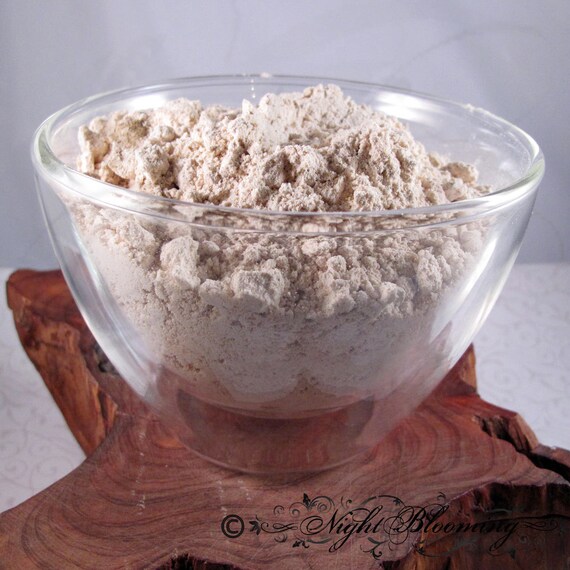
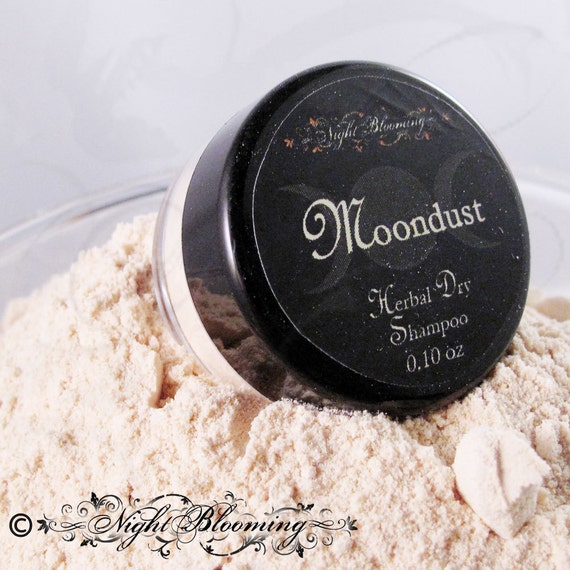
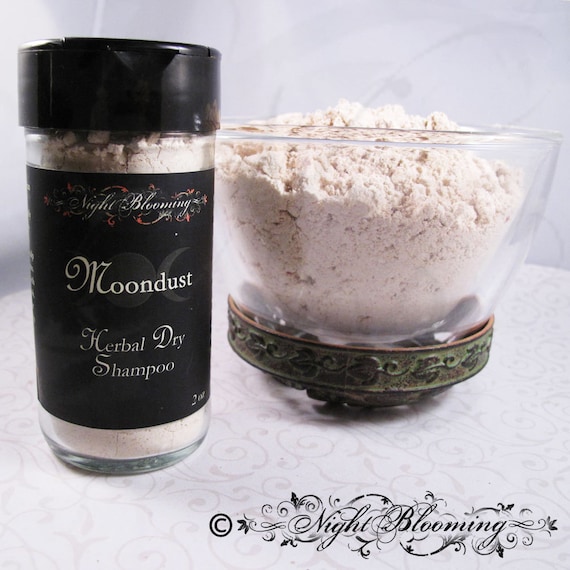
No comments:
Post a Comment